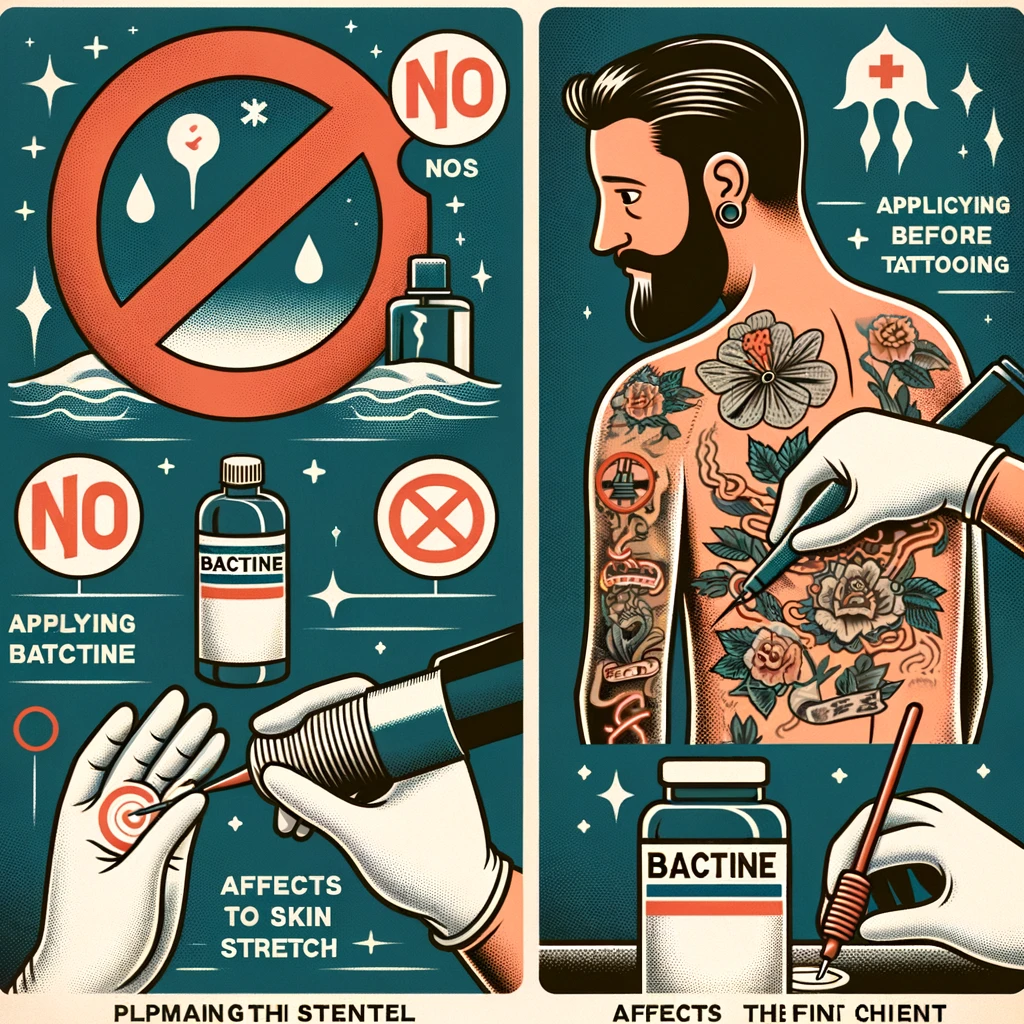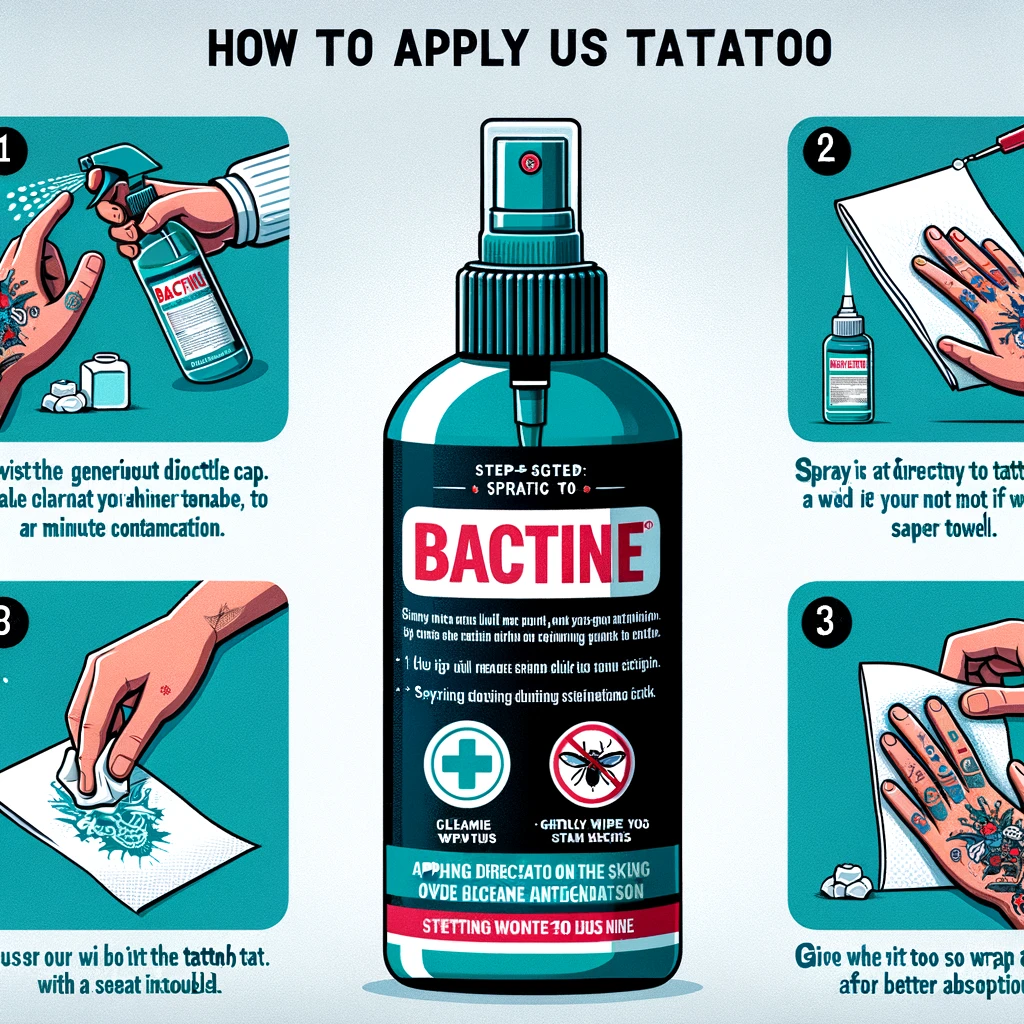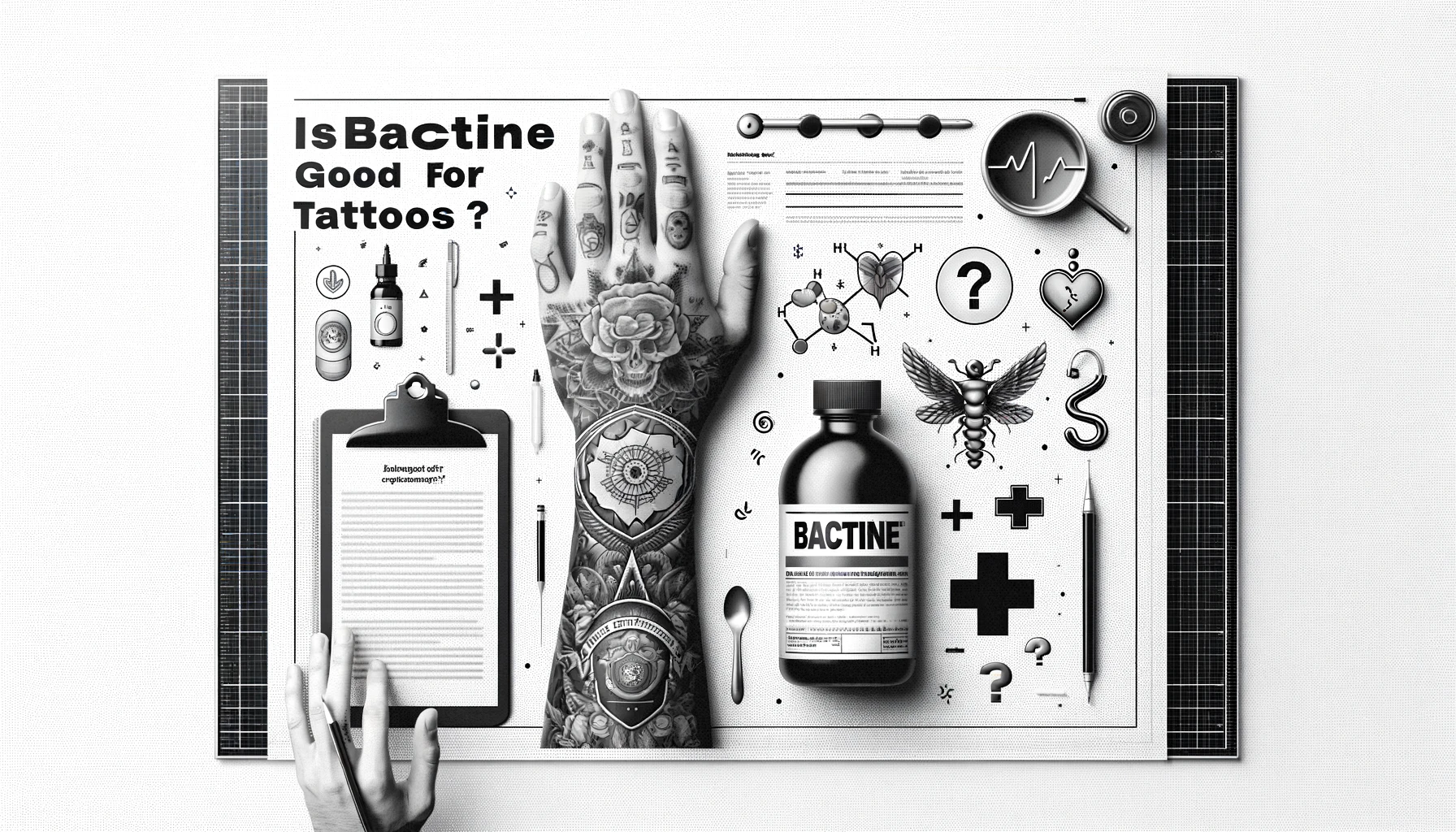One of the biggest fears when getting a tattoo is getting an infection. Since you penetrate the needles millions of times into the skin, it leaves an open wound. And for that, the tattoo needs proper aftercare.
Now, what can you do to protect your tattoo from infections? Well, there are many things, such as using a medicated badge like Saniderm. You can also use different ointments and creams. But one thing that stands as a beacon of light among all is Bactine. It can minimize infection risk on a tattoo.
Now, is Bactine suitable for tattoos? Let’s check it out in our blog ahead!
| Publisher | Alex Martin |
|---|---|
| Focus | Bactine Good for Tattoos |
| Category | Hygiene & Products |
| Article Type | Informative Guides, Tips & Advice |
| Update Frequency | Monthly to reflect new insights and trends |
A Little About Bactine and Its Working

Bactine is a medical-grade antiseptic and pain reliever. You don’t need a prescription to get it. It’s an over-the-counter medicine. Moreover, bactine has active ingredients such as benzalkonium chloride and lidocaine.
These ingredients are first-aid medical treatments with analgesic properties and antibacterial properties. Since Benzalkonium chloride has antibacterial properties, you can prevent infection by using it on tattoos.
Lidocaine helps you to get temporary relief from pain and itching.
Bactine helps relieve pain and fastens healing during the inkwork. Many tattoo artists use it to minimize the skin’s pain, redness, and swelling. Apart from that, it also numbs the skin, so that’s why many artists prefer it as a wash solution.
Not only for tattoos, but you can use Bactine for other skin problems like rashes, itches, sunburn, bug bites, cuts and scratches, etc. Although it’s a first aid medical liquid, it is infamous among tattoo enthusiasts for pain relieving during the tattoo engraving process.
From helping you to clean the wound to using it as an aftercare product, the bactine is best.
Using Bactine On Tattoos–Is it a Good Idea?
Since getting a tattoo is a painful process, your tattoo artist can use Bactine to give you some pain relief.
The Lidocaine in the Bactine has numbing properties, and it can numb the skin when you get your ink work done. So yes, Bactine is suitable for tattoos. It will smooth out the whole tattoo process. But that’s for the larger tattoos where you must sit for hours. For the little inkwork, it will not be a good idea.
How to Use Bactine on Tattoos?

When using Bactine, there are some dos and don’ts.
If you are a tattoo artist, you must not apply Bactine during or before the tattooing process. Why? There are several reasons. First, it will remove the stencil. Second, it will not give you a good stretch on the skin. Third, it is designed explicitly for wounds; applying it before a tattoo means you are wasting the liquid.
Moreover, applying the Bactine during the process is not a good idea because it will wear off its numbing properties, making it difficult for you to get it.
How do you apply Bactine on a tattoo?

Since you can’t apply bactine before or during the tattoo, you should apply it during the tattoo break. If not, you can apply it after the ink work is finished for the day. And yes, the Bactine will absorb well into the skin after getting the needlework.
To apply Bactine on a Tattoo, you should do the following:
- Twist the bactine spray bottle cap.
- Put a good amount of liquid on a clean paper towel.
- Wipe the tattoo with gentle hands. Don’t rub it off if the stencil is still on.
You might say, “What if I spray it directly? It will have the risk of airborne contamination. Also, don’t use dirty towels. After pouring the spray, give your tattoo a 10-minute break. You can also wrap it for better soaking.
Can I Use Bactine for Tattoos Aftercare?
The aftercare guide for the tattoo depends on your tattoo artist. Some artists recommend using unscented dial soap, while some might suggest the Bactine. To get a better idea, you can ask your artist.
However, using Bactine on the tattoo aftercare is good if you have oily skin or live in a humid area. The large amount of alcohol in the bactine can dry out the skin, and using it on already dry skin will lead to itching and dryness. Apart from it, applying bactine can also kill the good bacteria essential for tattoo healing. So, ensure you get a green signal from a tattoo artist to use it.
Using Bactine Before Getting Tattoo
You can use the Bactine spray before getting the stencil on. This way you will get pain relief while getting the ink work. Moreover, your stencil will remain intact.
To apply the bactine spray you must clean the tattooing area and spray the bactine directly onto it. When the spray is absorbed into the skin you can apply the stencil and begin the ink work. You can last an entire session of tattooing with this spray.
What Do Users Say About Bactine Effectiveness?
There is a strong customer base for the Bactine numbing spray. People use it for different purposes. From using it in woods to as a first aid medicine bactine works wonders. While there are a lot of users who support the idea of bactine for tattoos, we did not find any side effects of it. It’s a go to solution for many tattoo enthusiasts to relieve the pain of needlework.
Some Extra Tips for Tattoo Aftercare:
Although Bactine is suitable for tattoos for the most part, remember:
- It is essential to consult with your tattoo artist or a professional before using any product on your tattoo. Don’t use it out of the box on your own.
- Your tattoo artist can better guide you about tattoo aftercare. You should stick to the instructions provided by your tattoo artist.
- During the healing process, you should refrain from submerging your tattoo in water, such as swimming pools or hot tubs.
- Don’t go out in direct sunlight without sunscreen.
- Moisturise and clean the tattoo regularly to prevent dryness and cracking.
Conclusion–Bactine Good For Tattoo Aftercare?
Tattoo aftercare is important. You need to clean it properly and moisturize it. Moreover, Bactine is good for tattoos but it’s primarily for use during needlework. After getting the tattoo you should consult your tattoo artist and they can better guide you regarding that!



